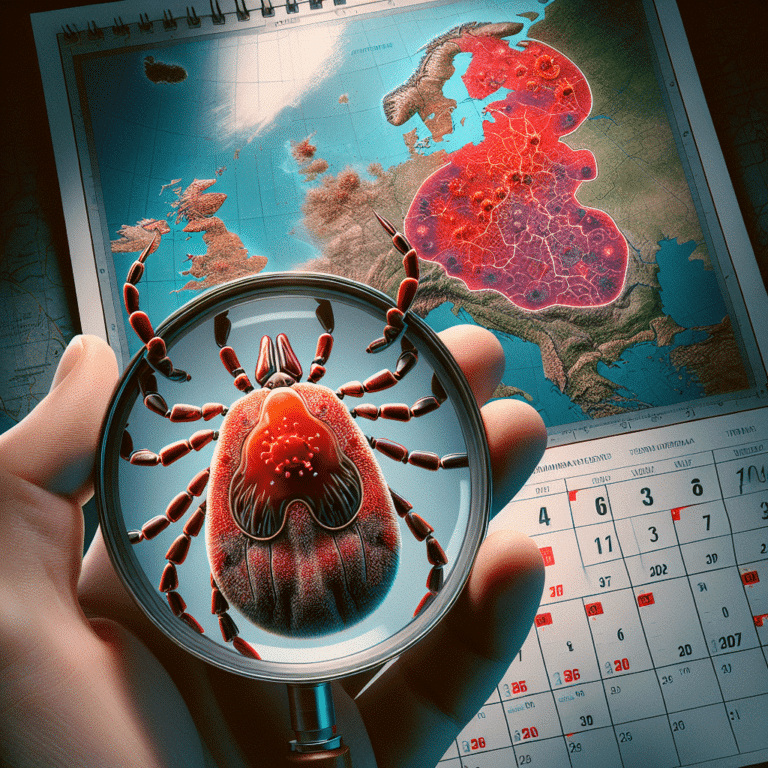Summary
- A 69-year-old man in the Netherlands was diagnosed with autochthonous human babesiosis caused by Babesia venatorum.
- The patient had a history of lymphoma, underwent splenectomy, and was immunocompromised.
- Prompt treatment with red blood cell transfusion and antibiotics led to a favorable outcome with undetectable parasites after 2 weeks.
- Babesia DNA was also found in ticks collected near the patient’s home, indicating a local risk of exposure to the parasite.
- The study highlights the importance of awareness among clinicians, especially for susceptible patients, and the need for further surveillance of tickborne diseases in Europe.
A man in the Netherlands was recently diagnosed with a rare tick-borne disease called babesiosis. Babesiosis is caused by tiny parasites that infect red blood cells. This man, who had a history of lymphoma and had his spleen removed, became ill with symptoms like fever and blood in his urine. It turned out he had been bitten by a tick near his home a few months earlier.
Doctors found parasites in his blood that were similar to the Babesia species. They treated him with a combination of antibiotics and anti-parasitic medications, and thankfully, he recovered well. The parasites were no longer detectable in his blood after two weeks of treatment.
Interestingly, when researchers tested ticks collected near the man’s home, they found that some of them were also infected with the same Babesia species. This suggests that there may be a higher risk of exposure to this particular parasite in that area.
This case highlights how important it is for doctors and the general public to be aware of tick-borne diseases like babesiosis, especially for those who may be more susceptible due to underlying health conditions. More research is needed to understand the prevalence of these parasites in ticks and animals in the Netherlands, as well as the potential impact of climate change on the spread of these diseases.
It’s essential for everyone to take precautions to prevent tick bites, such as wearing protective clothing and using insect repellent, especially in areas where ticks are known to be present. If you experience symptoms like fever or unusual fatigue after a tick bite, it’s crucial to seek medical attention promptly to receive appropriate treatment.
Source link
Infectious Diseases, Public Health & Prevention


